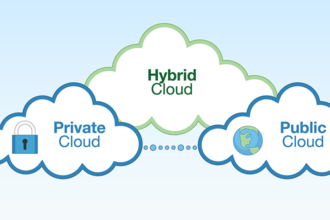While the economics of public cloud may be fairly clear for many organizations, public cloud is a murky area.
While the economics of public cloud may be fairly clear for many organizations, public cloud is a murky area.
Because of this murkiness, ZapThink’s Jason Bloomberg, who has been tracking the Web services/SOA/cloud world for many years now, predicts that private cloud — at least as the vendors are pitching it — is due for a backlash. This backlash will arise over the next year or two from enterprise customers “as vendors under-deliver on their cloud promises—not necessarily through any fault of their technology, but rather because the reality of achieving cost advantages with private clouds is far more difficult than the vendors’ and analysts’ spreadsheets might have you believe.”
Essentially, private cloud is pitched as a more secure answer to public cloud — only services are purchased from IT or some other group in the organization, versus an outside provider such as Amazon Web Services or Microsoft. However, from an economics standpoint, the two models aren’t comparable.
At issue is the fact that private clouds need to rely on chargeback mechanisms for funding, which tend to create more animosity than a sense of sharing. As Jason puts it:
“Everybody hates chargebacks. Not only are they a bookkeeping hassle, but they also demotivate the consumption of shared resources. We went through this problem when we dealt with shared services and SOA, and now we’re sharing cloud resources, but the problem remains: the whole point to the private cloud is to achieve economies of scale across the enterprise, but the only way to make such economies work is if most or all divisions participate. Chargebacks, however, discourage that participation.”
In fact, recent surveys I have worked on find only moderate support for the chargeback model thus far. In a survey of 257 IT managers conducted for the Independent Oracle Users Group, part of my work with Unisphere Research/Information Today Inc., we found a majority, 55%, either have or are planning private cloud implementations. Of this group, 37% report having or developing some kind of chargeback method for business users that access enterprise cloud services. In most cases, charges are based on metering, similar to the way they may pay to an outside cloud provider—user organizations are charged based on fixed rates and measured, actual usage of IT resources.
So that means six out of 10 private cloud organizations don’t really have a way of connecting private cloud usage with specific users or departments. So what happens is IT resources are deployed and proliferated, with their true costs not visible to the organization’s bean-counters. With public cloud, there is a highly visible cost for each cycle or service provisioned assigned the specific users. The true costs of IT become transparent. With private cloud, a lot of subsidizing of services takes place, with costs being absorbed into central IT budgets or by one department or another.
How can more clarity be brought to the economics of private cloud? Jason has two words: “effective governance.” He advises managers to “establish and enforce cloud consumption policies that counteract the demotivational effects of chargebacks, and come up with a way to motivate people to follow such policies.” Jason cautions, however, that since private cloud is a new frontier, it’s going to take time to get things right. For example, “policies for provisioning virtual machines as part of IaaS is quite different from, say, provisioning development tools on PaaS.”
(Photo: Wikimedia.)








